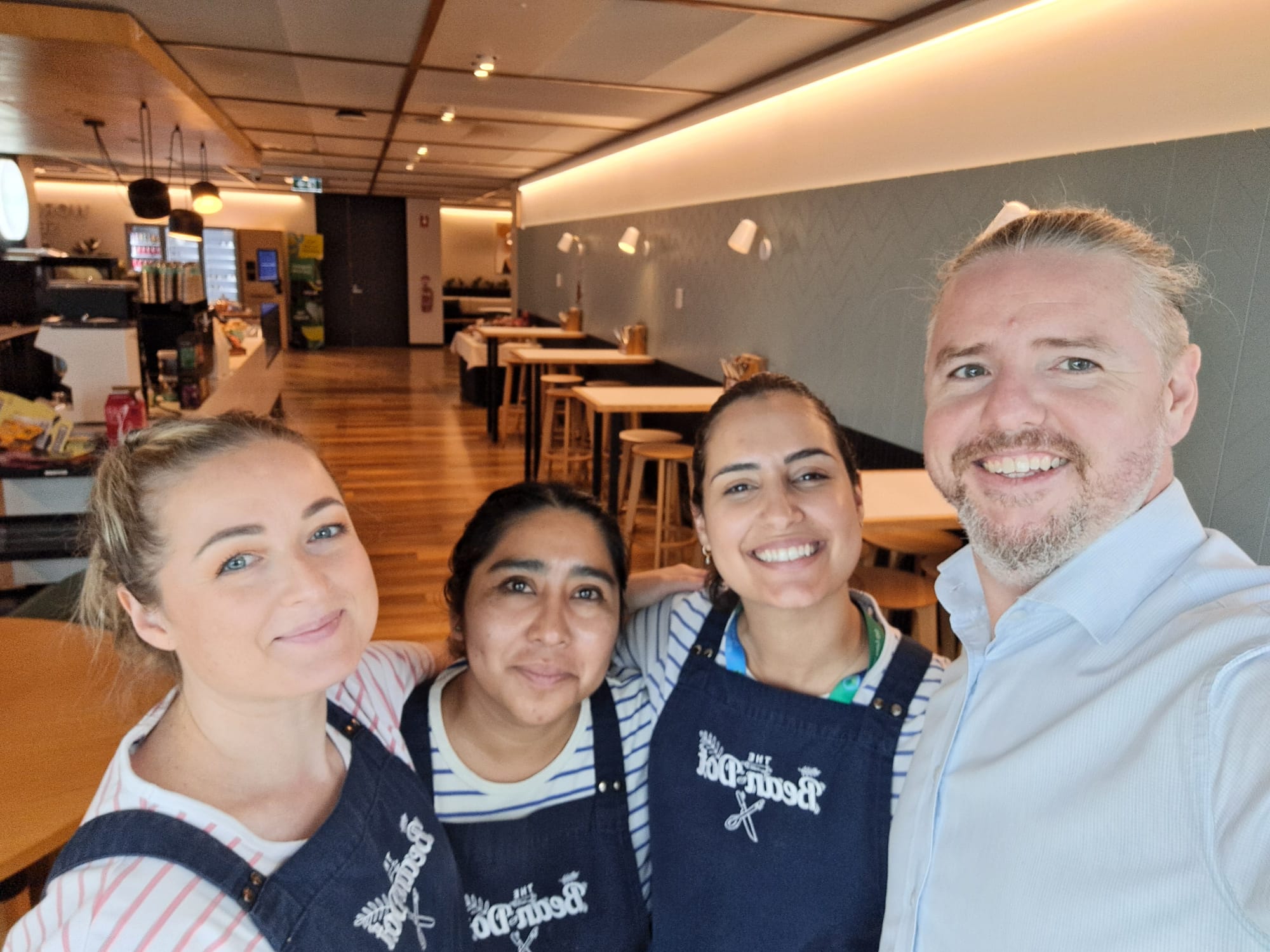Compass Group, the world’s largest food services group which operates in 45 countries, employs around 550,000 people and serves over 5.5 billion meals a year, has announced a commitment to reach Net Zero greenhouse gas (GHG) emissions across its global operations and value chain by 2050.
The Group’s Net Zero target makes Compass the first international company in the contract catering industry to announce a global commitment to a 2050 net zero emissions economy. It includes ambitious emissions reduction targets over the next decade which have been validated by the Science Based Targets initiative (SBTi), and a further commitment to be carbon neutral worldwide in its own operations (Scope 1 & 2) by 2030.
Compass Group’s decarbonisation strategy will be delivered through collaboration, innovation, and investment across its global operations. Specific actions include:
-
- Transition of all fleet vehicles globally to 100% plug-in electric
-
- Switch to renewable electricity across all its own operations
-
- Reformulate menus to be low carbon and switch towards more plant-based proteins
-
- Increase sourcing from regenerative agriculture
-
- Focus on packaging solutions to further reduce single-use plastic
-
- 50% reduction in food waste across its operations globally by 2030
-
- Increase share of seasonal and locally sourced produce
-
- Invest in climate positive projects worldwide to support decarbonisation, compensation and neutralisation including reforestation, biodiversity, freshwater, land and ocean initiatives
-
- Deliver a global deforestation-free and land conversion-free supply chain strategy

As well as driving significant reductions in its own operations, the Group will use its scale and global reach to influence and work collaboratively with clients, industry associates, governments and suppliers to reduce their direct GHG emissions, set their own Net Zero and Science Based Targets and help create a more sustainable global food system.
Approved Science Based Targets
-
- 46% reduction in absolute Scope 1 and 2 GHG emissions by 2030 from a 2019 base year, classified by the SBTi as in line with a 1.5°C trajectory
-
- 28% reduction in absolute Scope 3 GHG emissions from all food and drink purchased by 2030 from a 2019 base year; classified by the SBTi as aligned to a Well Below 2°C trajectory
Group-wide Decarbonisation Commitments
-
- Carbon neutral worldwide in Group operations by 2030
-
- Climate Net Zero across global value chain (Scope 3) by 2050
This announcement follows the commitment made earlier this year by the Group’s UK & Ireland business to deliver Climate Net Zero across its operations by 2030. Compass intends to leverage the experience of early adopter countries such as the UK to share best practice across the Group and drive accelerated transformation towards its global Net Zero goal.
“The international food industry has a major role to play in reaching Climate Net Zero and driving the transition to a healthy and sustainable food system. Compass Group’s new global Climate Net Zero target reflects our teams’ commitment to sustainable sourcing, eliminating food waste and transforming our environmental impact.
Given the complexity of the global food supply chain as it is today, we do not underestimate the scale of the challenge ahead of us. Radical new collaborations are urgently needed across the entire value chain to make it a reality. As the world’s largest food services group, operating at the heart of the global food supply chain, we are in a unique position to influence real change, by working in partnership with our suppliers and encouraging sustainable consumption from the clients and consumers we serve every day.”Dominic Blakemore, Group Chief Executive Officer of Compass Group PLC
More details on the Group’s sustainability strategy and Net Zero priorities to 2030 and beyond can be found in its Global Roadmap to Net Zero. It is the Group’s intention to provide an update annually on its progress and Roadmap development within its global Sustainability Report, and the Group has committed to validating its 2050 Net Zero targets with the SBTi once its guidelines are finalised.



